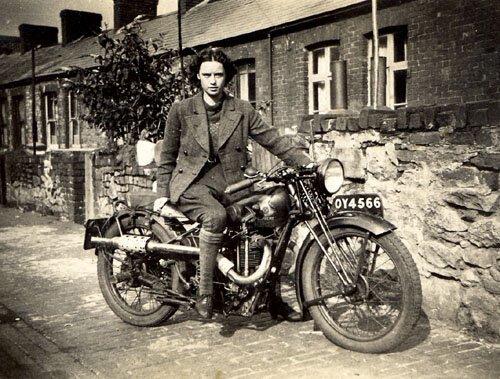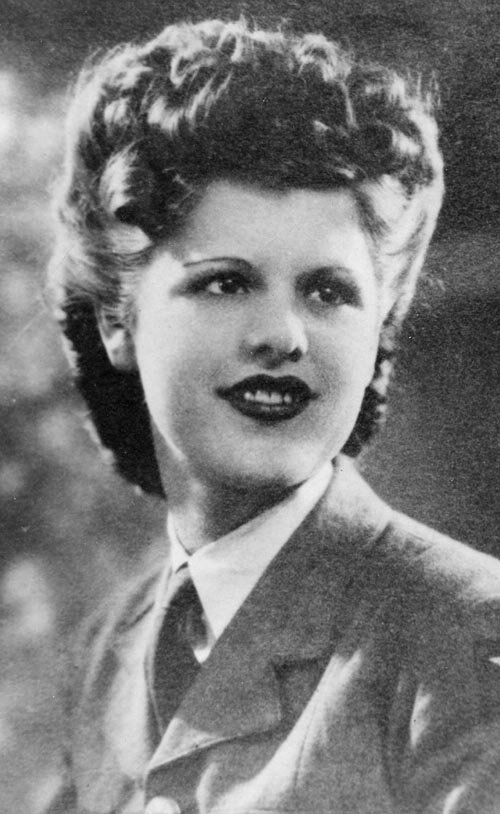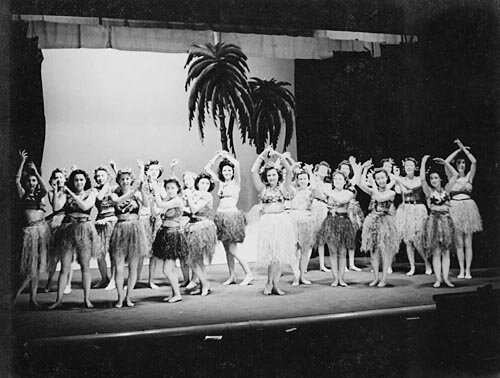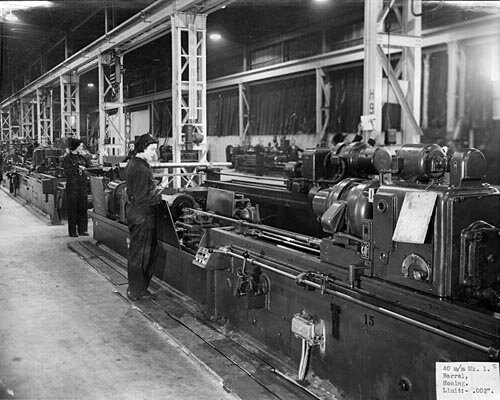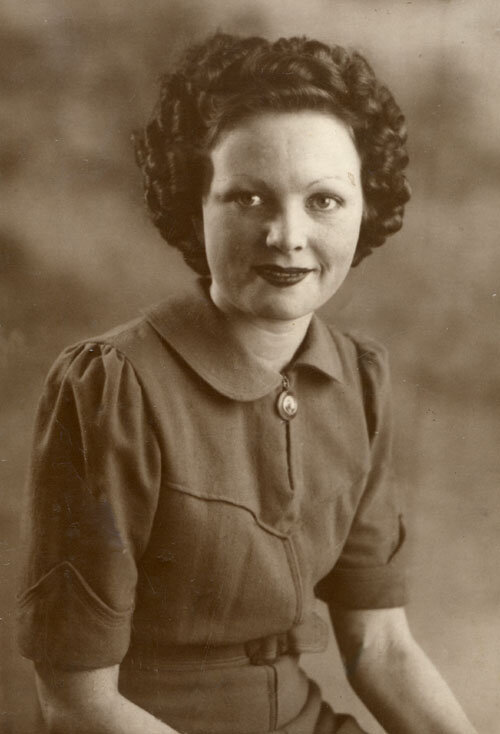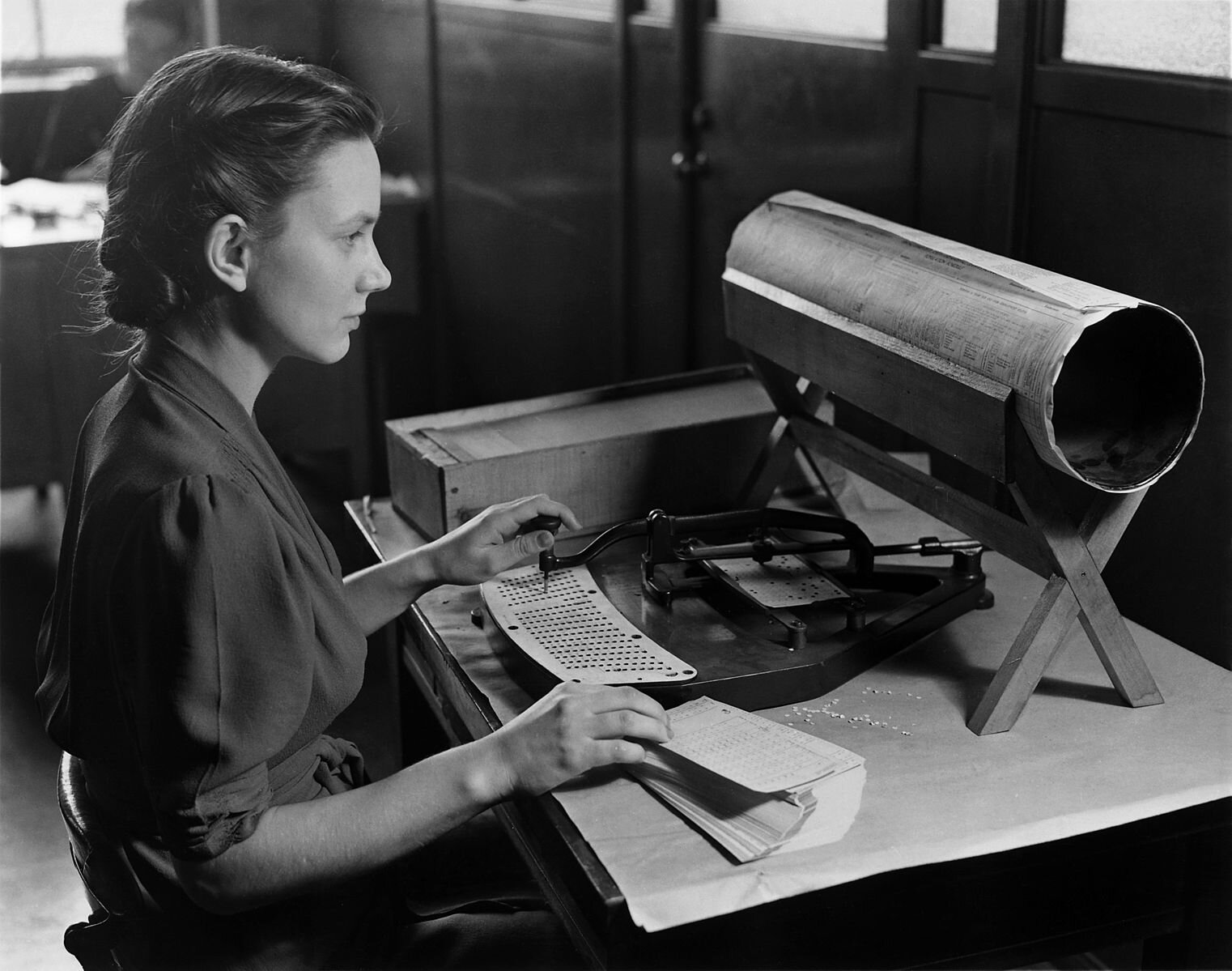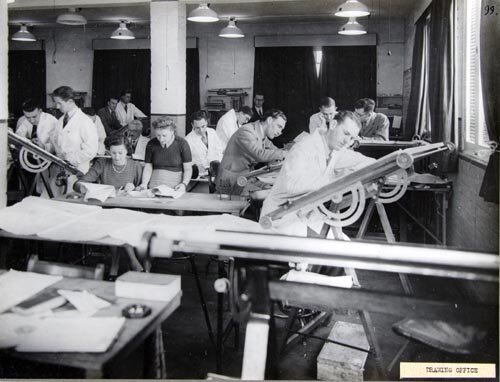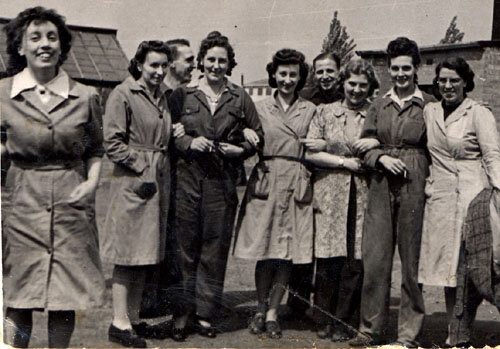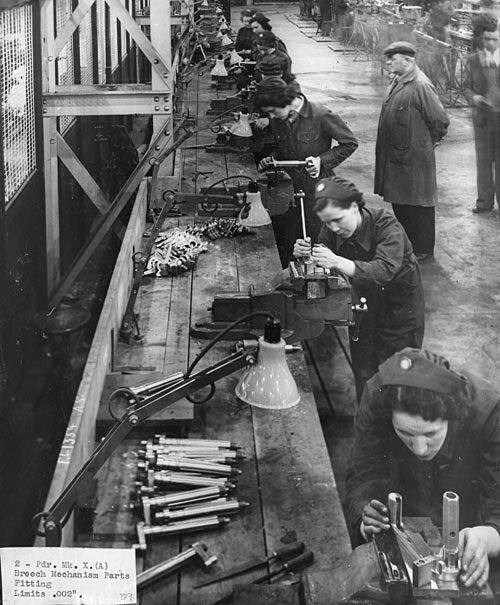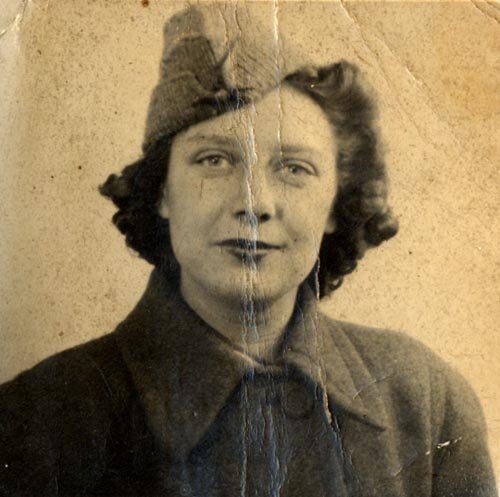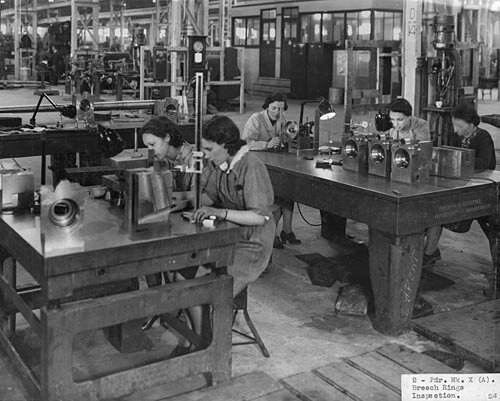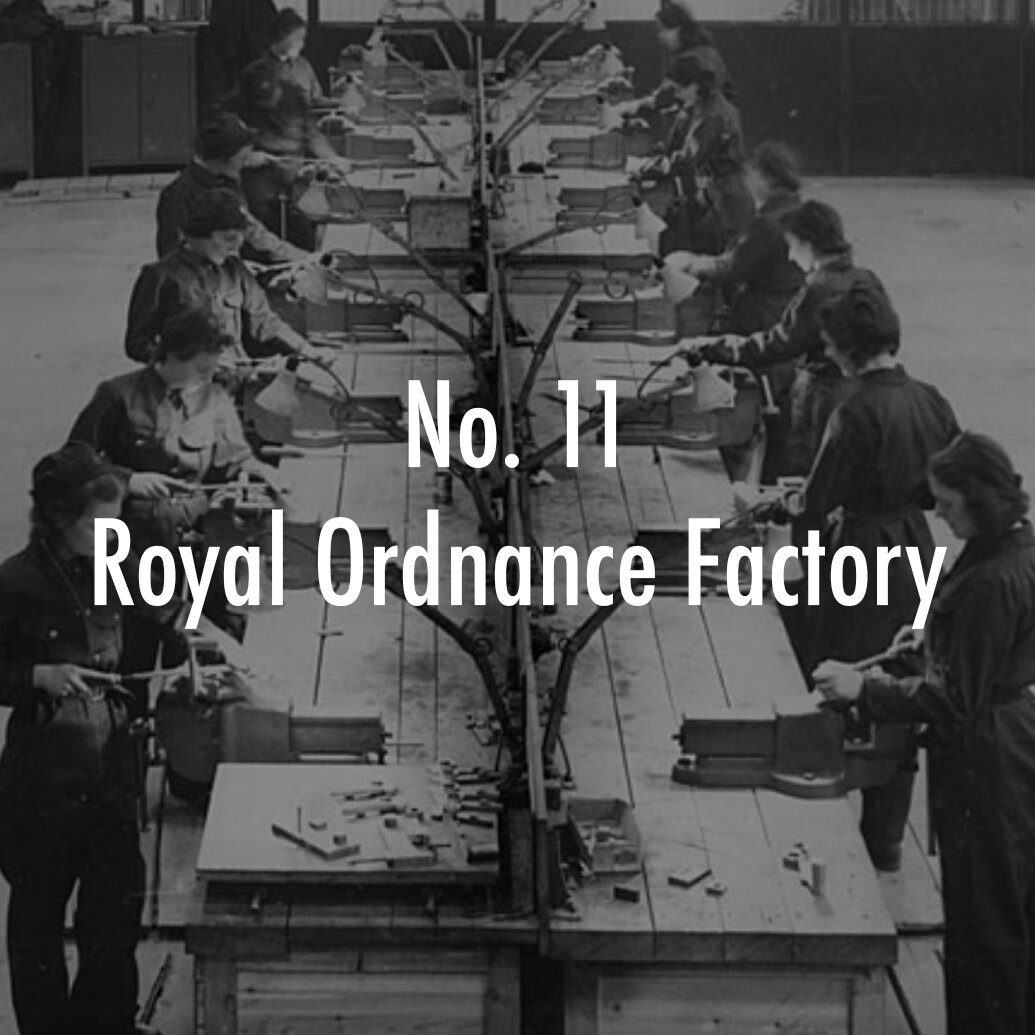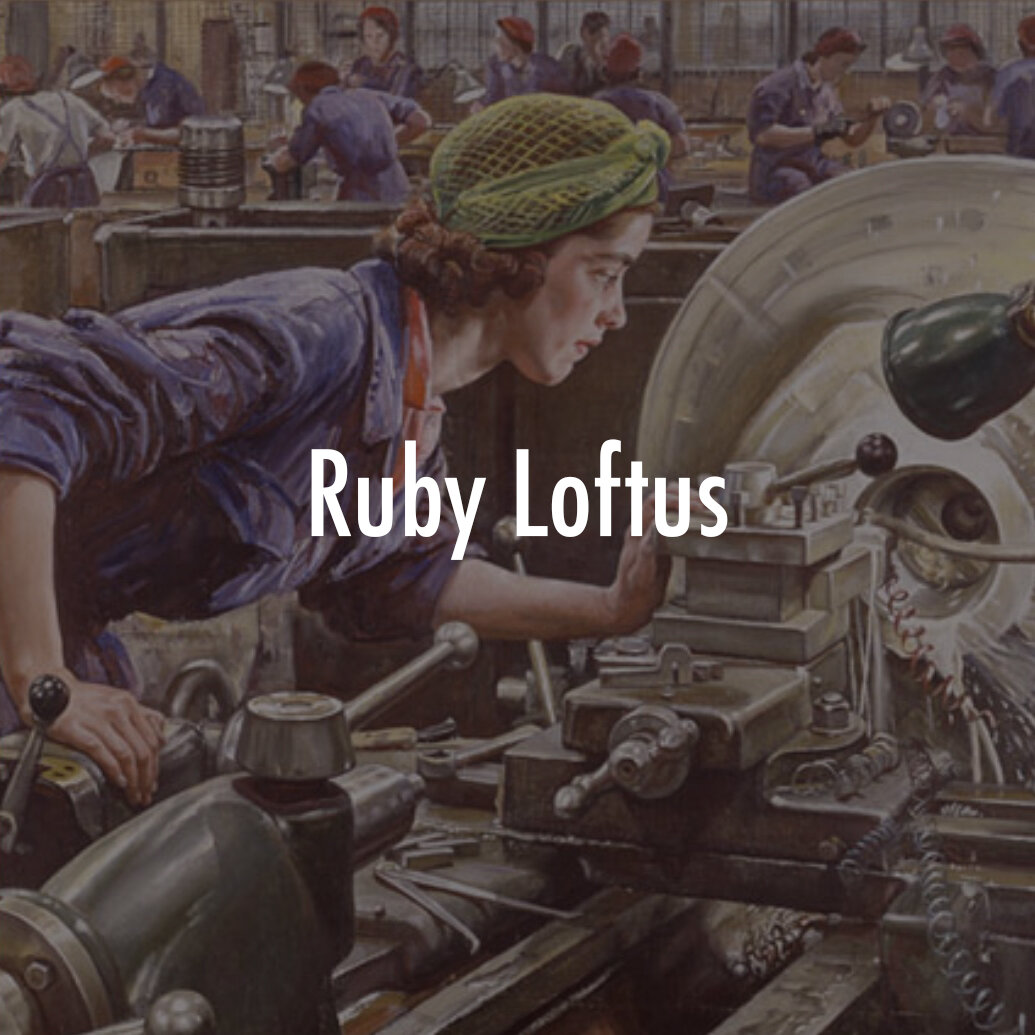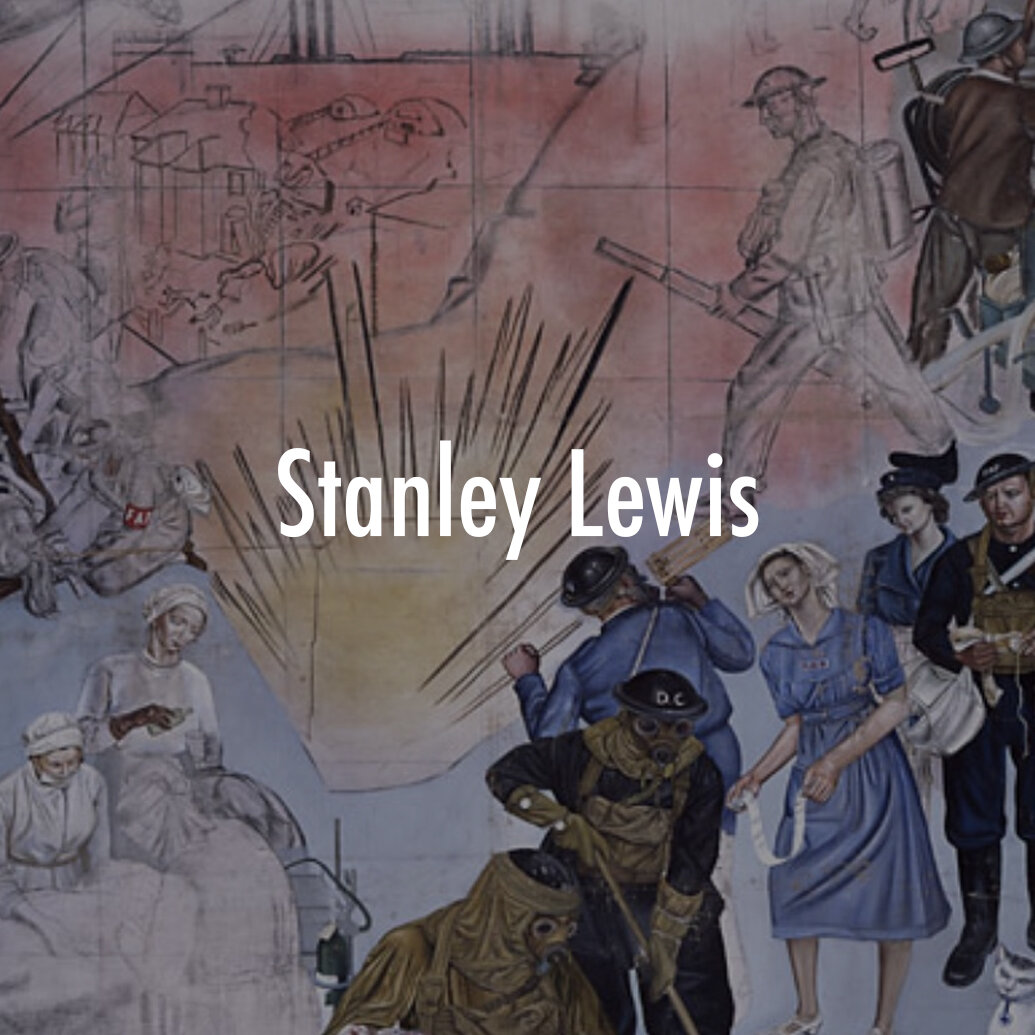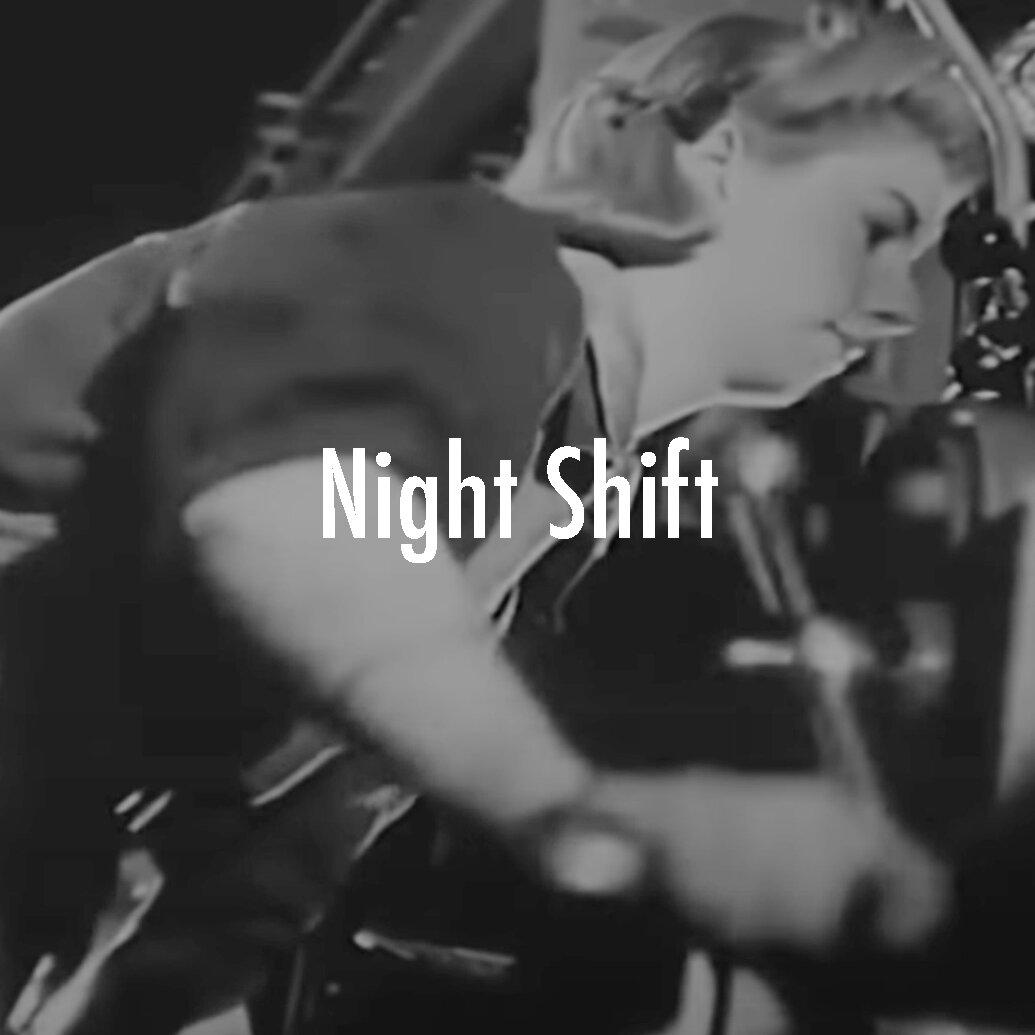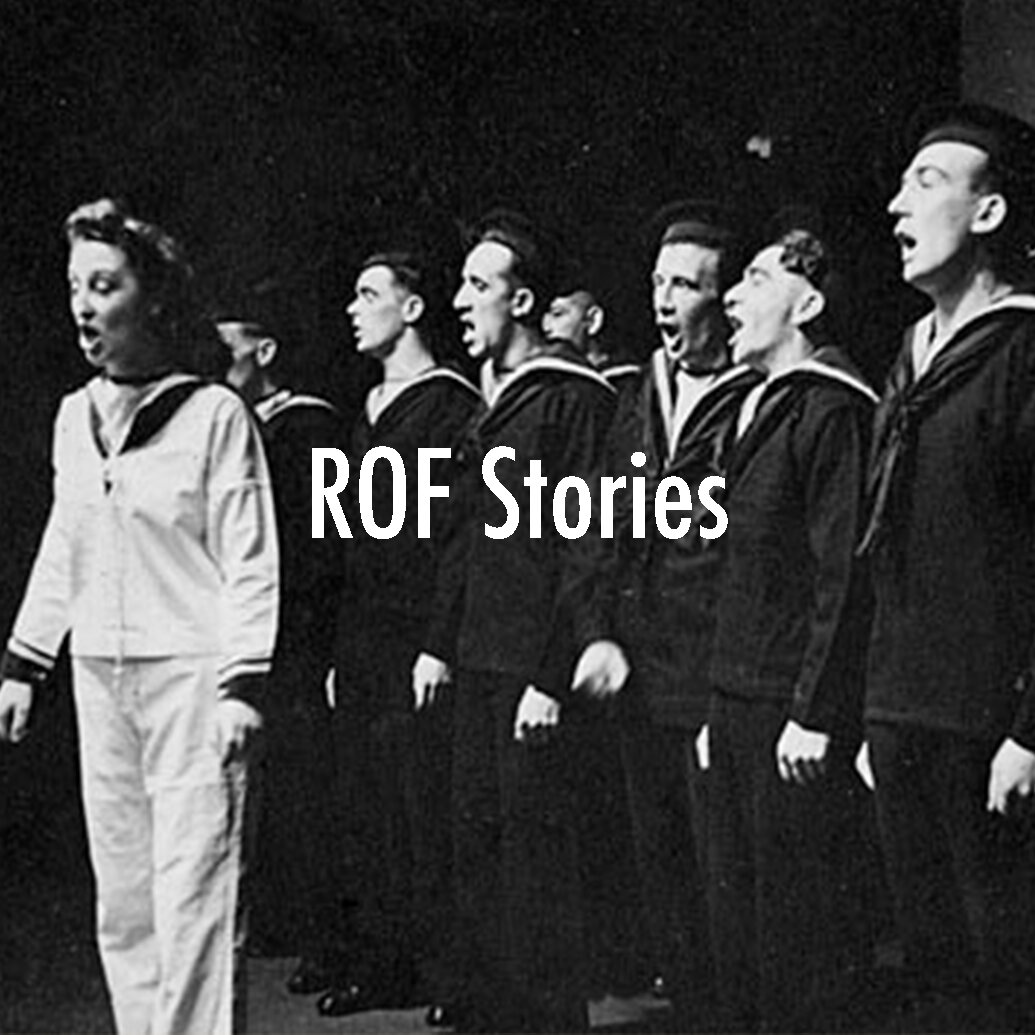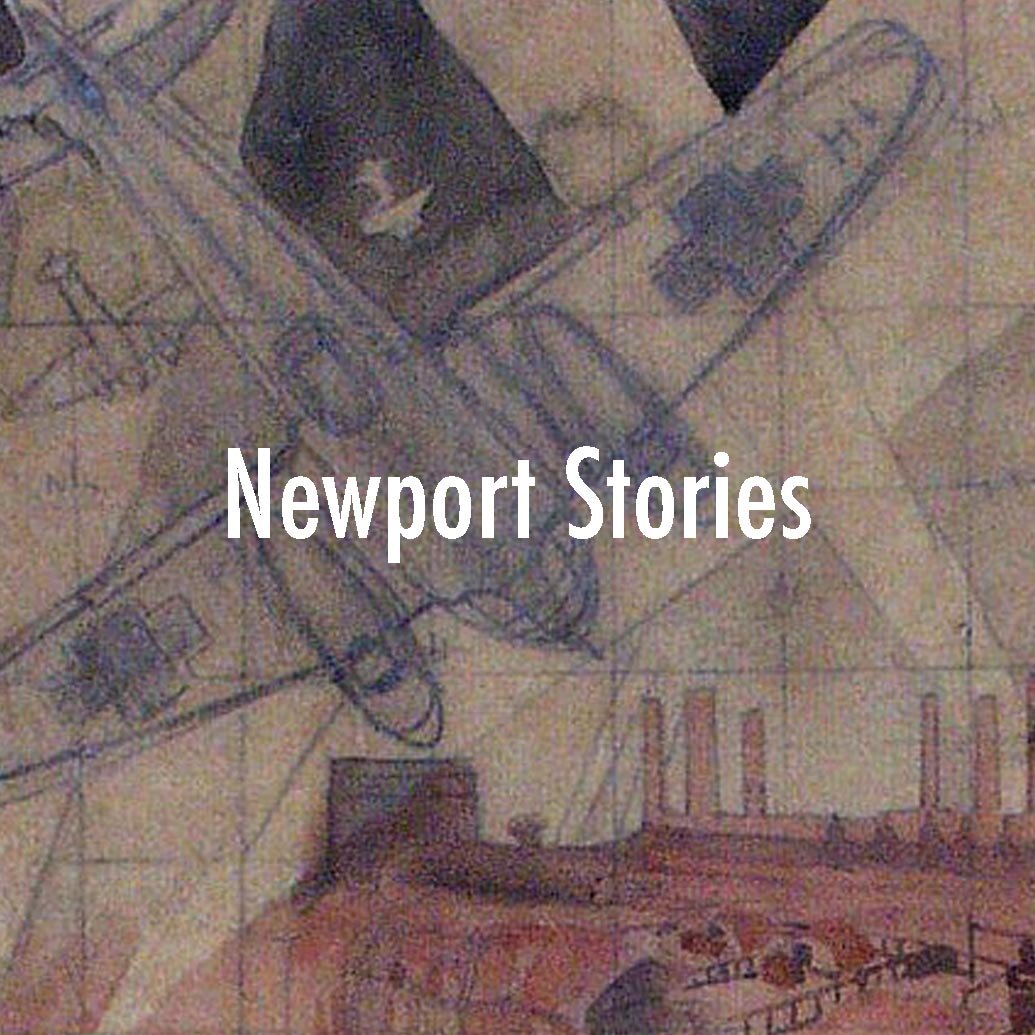ROF Stories:
A Couple of Tearaways
Claire Mathissen was nineteen in 1939 had been working at Jerome’s the photographers and occasionally at the local cinema before the war.
This is her story.
"My mam said there was no chance of me going into the Forces, so in 1940 I started work at the ROF. My mam didn’t want me to work in a factory either, but I told her I had to because at the beginning, there was no office there for me to work in.
There were only twenty-one people in all working there when my group arrived and there was only one machine. They dressed us up in overalls but there was nothing to do. They paid us “waiting time” for ages.
At first we only worked days but later when the work increased night shifts were introduced. I used to work from 8.00 in the night till 8.00 in the morning, but we were usually there until 9.00 a.m. telling the day shift what we had been doing. Then I’d go to the market and queue for the rations.
In the summer, after a few hours’ sleep, I’d get up in the afternoons and go for country walks with my friends to get some fresh air before starting work again.
"Where's our volunteers!"
In the winter, we used to get really bad fog and during the blackout it was very hard to find your way about. We used to get on the bus, pay our fare and then the driver would say, “Where’s our volunteers?” because four or five of us used to carry torches. We’d get off the bus and lead it through by the light of the torches. We didn’t mind; it was exciting.
I remember going in to work at the Factory on Boxing Day. There were only one or two buses that day. I told the conductor, “I want this stop.” The bus stopped suddenly and I came flying off, landed flat on my face, tore the knees out of my stockings and badly grazed my legs. When I got to the Factory, I ended up in First Aid all day – and I got double pay!
The machinery used to frighten the life out of me. Then someone dropped a breechblock on my foot; I lost my toenail but I didn’t feel pain then.
A vacancy came up in the Inspection Office working with a Miss Jackson who was very strict. Mr Bloomfield was in charge and the assistant foremen were Jack Robinson and Matt Powell. At the end of each month we had to work until 2.00 a.m. on Friday and Saturday doing the paperwork. Then we’d be driven home in the Factory’s chauffeur-driven car!
Gwyneth Cullimore came to work in Inspection with me. She was the daughter of one the managers or foremen and she had been working in Administration which she didn’t like. She had a beautiful voice and ended up singing with the D’Oyly Carte Opera.
A couple of tearaways
Then Queenie Loftus joined us; we had a wonderful friendship. We used to work on nights together. It was relaxing working at nights, fewer interruptions and a calm, friendly atmosphere. One of the men used to go up to the lab. and heat up milk in a glass beaker over a Bunsen burner, so that we could make that Camp coffee out of a bottle. Later on we used to work two weeks of day shift followed by two weeks on night shift.
Queenie and I were lucky – we got a lot of dates. If we’d had a night off and I missed the bus, I used to stay at her house. We were a couple of tearaways! In those days the boys wouldn’t let you pay. One boy wanted to take me to the cinema but he didn’t have enough money. I offered to pay my share but he wouldn’t let me. It was a matter of pride. So we didn’t go. We’d go for walks or to a café and there were Sunday night concerts at the Olympia. We had our bit of fun.
Queenie and I used to make our own hats and matching handbags out of any material we could get hold of, once even my mother’s old skirt. We’d cut out two circles of fabric to make a beret and then fold an envelope out of material to make a bag with a loop and a big button on the front to fasten it. You could plait some material to make a shoulder strap.
“The cat's whiskers!”
Once, Queenie and I decorated our home-made hats with feathers and went to the pictures. Some boys sitting behind us in the cinema set fire to our feathers. The smell was awful and we got thrown out. But when we explained what had happened, they gave us tickets to go another evening.
There was a new building going up at the Factory during 1943 for the CIA - the Chief Inspectorate of Armaments. The noise was terrible with the pneumatic drills. We needed to concentrate because we were dealing with very detailed and intricate work with the measurements of the screw threads. We used to get messages from Woolwich Arsenal warning us about the need for absolute precision. I was very worried about the responsibility . The stress was making me ill. I had to go before a panel of a dozen doctors before they would release me.
Eventually, towards the end of 1943, I left the Royal Ordnance Factory and went to work in the wages department of Northern Aluminium at Rogerstone where they were making aircraft wings. If the weather was good I used to walk to work from Park Square with four or five other people from Newport although we could claim our travel expenses.
After the war, because I was married to a Norwegian man we went to Norway under the repatriation scheme with our baby daughter. We stayed there eight months but came back in the awful winter of 1947, by which time I was expecting my second baby.
One day we saw Queenie’s mother all in black in Newport. She’d just come from Queenie’s funeral; we were all devastated. Martha Loftus said she hadn’t told me because it was too distressing; there was no treatment for cancer in those days. Although we lost touch when we both got married, Queenie and I had been such good friends."
Claire Cordelia Wilkins (née Mathissen)
July 2005
